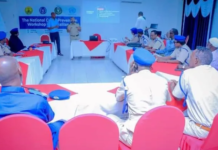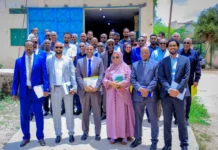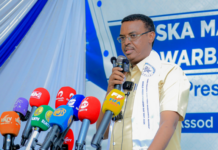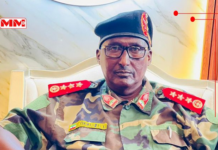The recent parliamentary and civic elections in Somaliland succeeded where many Horn of Africa states have failed due to authoritarian regimes meddling in the electoral process.
The success was not accidental but a show of the the breakaway nation’s nascent democracy. The elections were preceded by meticulous planning and preparations by the country’s National Electoral Commission (NEC) to guarantee a free and fair poll.
NEC spearheaded electronic mass voter registration and education which netted more than 1.3 million voters. The government and security organs accorded the electoral body with support, including financial and security, without an iota of interference in the polls.
In a display of political maturity and growing democracy, pro-government and opposition politicians conducted issue-based campaigns. The main opposition parties, Somaliland National Party (Wadani) and Justice and Welfare Party (UCID), and the ruling Peace, Unity and Development Party (Kulmiye), sold their manifestos to the electorates peacefully and devoid of clan connotations.
Electoral technology
On election day, unlike other jurisdictions where polls are marred with hitches, it was all systems go. The electoral body deployed state-of-the-art Iris Biometrics Voter Verification System (IBVVS), becoming the first country to use the electoral technology in the Horn. Thanks to the technology, voting was hastened resulting in high voter turnout.
Somalilanders, including the marginalised groups like the elderly and persons with disabilities, came out in large numbers to vote.
Despite its being a small country, and whose international recognition is pending, Somaliland managed to deliver free, fair, credible and transparent elections. The polls were given a clean bill of health by local and international observers, civil society, diplomats and the media.
To cap it all, the incumbent, President Muse Bihi Abdi conceded defeat in some areas where his party, Kulmiye, lost to opposition candidates. His actions have earned him admiration across the political divide, projecting him as a statesman and democrat. Losers and winners even took pictures congratulating each other for the good fight and telling the world “how it is done in Somaliland”.
The results were announced on time and accepted across the political divide. The polls provided an opportunity for marginalised groups, especially the youth, to have a voice in Parliament. Barkhad Batuun was elected from the minority clan of Gabooye and Abdikarim Moge, a youthful activist was elected Mayor of Hargeisa, the capital city.
Credible elections
Somaliland has taught us that it is possible to hold credible elections without conflict and unnecessary enmity. Secondly, it brought to the fore the role of technology in aiding credible and transparent elections, especially in polarised political environments.
Apart from blossoming democratic space, Somaliland has made great strides in infrastructure development and security. Since its secession from Somalia in May 1991, the territory has been governed by democratically elected governments. Indeed, it has over the years developed a stable, democratic system of politics, merging modern and traditional elements, with seven elections over the past 30 years, including a referendum in 2001.
The democratic practice in the country, as evidenced by peaceful regular elections and handover of power, is an envy of many in the region. Even when poll outcomes have been close, like in the 2003 presidential election won by Dahir Riyale Kahin by a paltry 80 votes against Ahmed Mahamoud Silanyo, the country has remained politically stable.
Somaliland’s successful elections and stability has raised its profile significantly. The international community should speed up the process of recognising it as a sovereign state.
As Kenya prepares for a general election in just over year, it has a sister in Somaliland to look up to. We should have no verbal and physical attacks and counter-attacks among political competitors, loss of property and definitely no loss of lives. It is just not worth it.
The writer is a scholar in international relations.






































